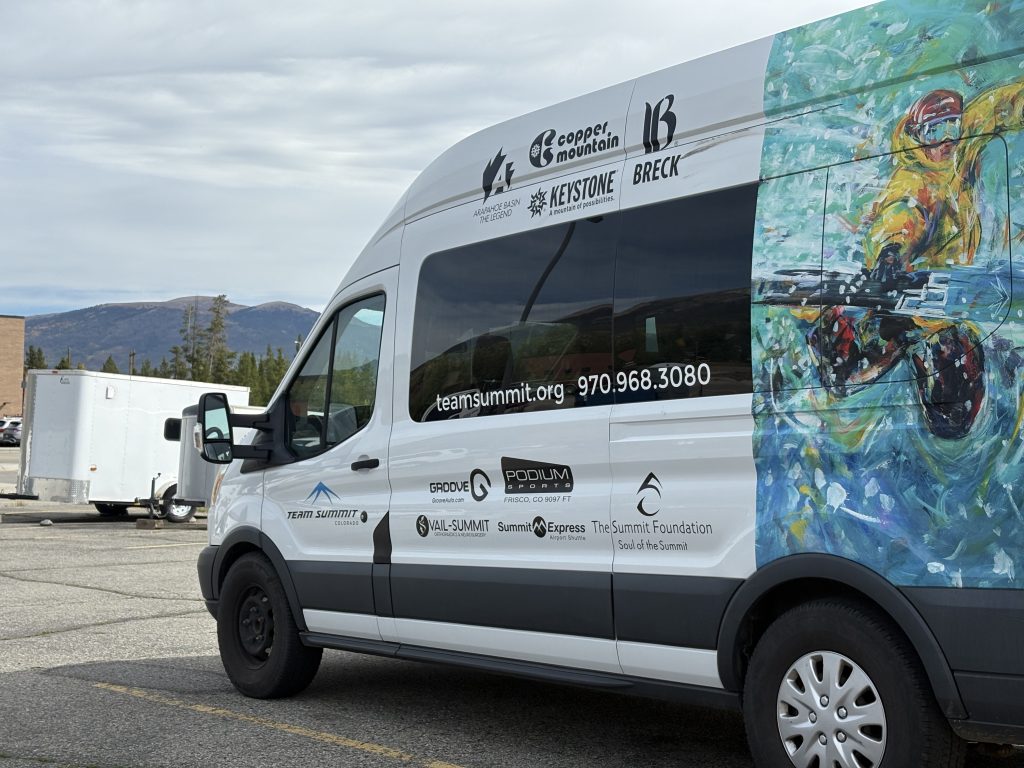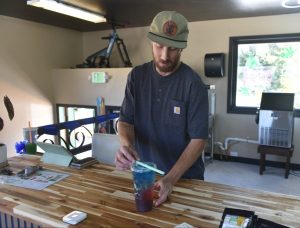Team Summit adjusts athlete protection policies in wake of ex-coach’s arrest on sexual assault charges

Kyle McCabe/Summit Daily News
After a Team Summit coach was arrested on charges related to criminal sexual assault of a minor in March, the organization reviewed its travel policies and has since implemented additional ones.
Team Summit executive director C.B. Bechtel said the group’s travel policies prior to former coach Jared Hedges’ arrest were in compliance with U.S. Center for SafeSport requirements. He said Team Summit had “basically” adopted the SafeSport policies as its own.
The organization reviewed its policies with the help of U.S. Ski and Snowboard and three outside mental health and child safety organizations: Mile High Behavioral Healthcare, Arise Network and the Treetop Child Advocacy Center.
Taos County Sheriff’s Office deputies arrested Hedges, 48, at Taos Ski Valley on March 22 while he was in Taos for a ski competition with Team Summit, which fired him after his arrest.
The district attorney in Taos dismissed the charges against Hedges without prejudice in April, “pending receipt of further discovery and investigatory evidence.” Dismissing without prejudice left the door open for the charges to be brought again, and a grand jury on June 18 indicted him on two counts related to sexual contact with a minor.
According to the New Mexico court case detail page for Hedges, he is scheduled for a pretrial conference appearance June 1, 2026, and a jury trial is scheduled to begin June 22, 2026.
The original arrest affidavit for Hedges stated the other coach on the Taos trip was not present when Hedges allegedly made sexual contact with one of the minor athletes. It also stated the Team Summit group was staying in two cabins, with eight to nine kids staying in each cabin.
Bechtel said Hedges and the other coach were staying in separate cabins and each had their own room in which to sleep.
The 2025 SafeSport Minor Athlete Abuse Prevention Policies document requires all contact between adult participants and minor athletes to be “observable and interruptable.” It requires two adults be present during room checks if an organization does them during a trip.
The 2025 SafeSport MAAPP Manual states that “observable and interruptable” interactions must be able to be observed and interrupted by another person, adult or minor.
A page on U.S. Ski and Snowboard’s website details athlete safety policies and guidelines. Its travel policies state that, during overnight team travel, athletes should be paired together by age and gender and that “a coach or other responsible adult should be located in any hotel, condominium, house or other facility where athletes are housed.”
Bechtel said Team Summit adopted a policy of having at least one adult per accommodation on overnight trips based on the U.S. Ski and Snowboard policy. After Team Summit reviewed its policies, it implemented a new one requiring at least two adults per accommodation.
SafeSport and U.S. Ski and Snowboard policies state adults cannot share a hotel room or sleep in the same room as a minor athlete. Bechtel said Hedges and the other coach on the trip had their own rooms in the cabins to sleep in.
The original affidavit in Hedges’ case stated three children were “staying in the downstairs area” of the cabin with Hedges “when the incident occurred.” It stated the victim was sleeping “in the living room area” and that the victim stated Hedges was “laying next to” them when the sexual contact occurred.
Bechtel said Team Summit is unaware if Hedges was sleeping in the same room as the athletes. The lodging arrangements intended for Hedges to sleep in his own room, but if he did not, it would be a violation of SafeSport and Team Summit policies, Bechtel said.
The other coach no longer works for Team Summit, Bechtel said, but he could not comment further on the details of their employment. Bechtel said that, in general, if Team Summit suspects a coach of violating SafeSport policies, it reports them to child protective services.
The other coach does not appear on SafeSport’s disciplinary database, which lists Hedges as “ineligible,” or on the U.S. Ski & Snowboard Organizational Exclusion List. Their membership with U.S. Ski and Snowboard is listed as “inactive” on the organization’s website, with certifications that expired June 30.
U.S. Ski & Snowboard certification renewal is not due until Oct. 15, Bechtel said, and an “inactive” status does not indicate the coach is not in good standing with the organization.
Team Summit has cooperated with investigators since Hedges’ arrest, Bechtel said, and done an internal human resources investigation into the incident to determine if policies were violated. He said he could not comment on the specifics of that investigation.
The organization’s new travel policies, which Bechtel said go “beyond” SafeSport requirements, require athletes traveling with the team to be at least 12 years old; there to be two adults per accommodation; there to be one adult of each athlete’s gender; and that parents review and sign trip details documents for each travel event in addition to the already required season-long travel waiver.
Bechtel said Team Summit created a process for parents to become chaperones after reviewing its travel policies. He gave the example that if only four athletes are going on a trip, it could be difficult to find two coaches to travel with them, so having a parent chaperone relieves that stress.
The process for parents to become chaperones mirrors the process coaches go through to be able to take athletes on trips. Bechtel said they have to sign up with U.S. Ski and Snowboard, which provides background screening and tracks their safesport education.
Parents and coaches also have to annually review Team Summit and SafeSport athlete safety policies, receive additional training during orientation events, take concussion training, sign an employee handbook code of conduct and more.
Team Summit now encourages more family travel, Bechtel said, meaning parents travel with their children so they do not have to stay in team lodging. Bechtel said a team trip to Mt. Hood this summer was a good example of family travel, as parents dropped off their kids at a specific lift in the morning and picked them up later in the day.
Bechtel said family travel will not work for all of Team Summit’s trips, but it will work for “90% to 95% of them.”
Another recent update to Team Summit practices comes in the shuttles they use to transport minor athletes around the county, Bechtel said. The organization has always had a policy of not allowing an adult to ride in a shuttle with only one minor athlete, but Bechtel said it added camera systems to its shuttles this summer as another level of protection for the athletes.
Bechtel said incidents like Hedges’ arrest, where Team Summit coaches are fired or reported to SafeSport, local authorities and child protective services, are “extremely rare” thanks to “our robust vetting and training policies and practices.”
“We’re working hard to give kids an opportunity to participate in what this community is founded on and what brings people to Summit County,” Bechtel said.

Support Local Journalism

Support Local Journalism
As a Summit Daily News reader, you make our work possible.
Summit Daily is embarking on a multiyear project to digitize its archives going back to 1989 and make them available to the public in partnership with the Colorado Historic Newspapers Collection. The full project is expected to cost about $165,000. All donations made in 2023 will go directly toward this project.
Every contribution, no matter the size, will make a difference.










